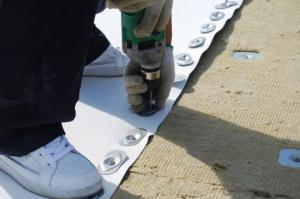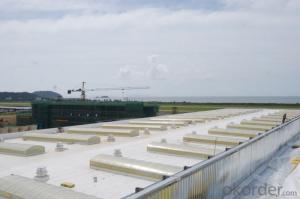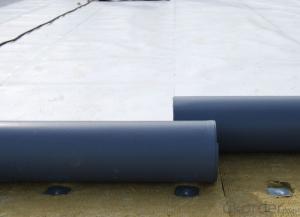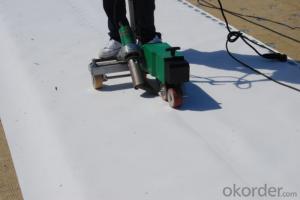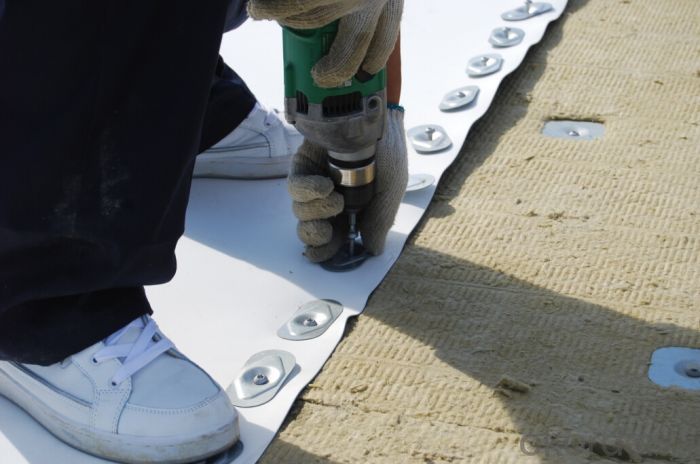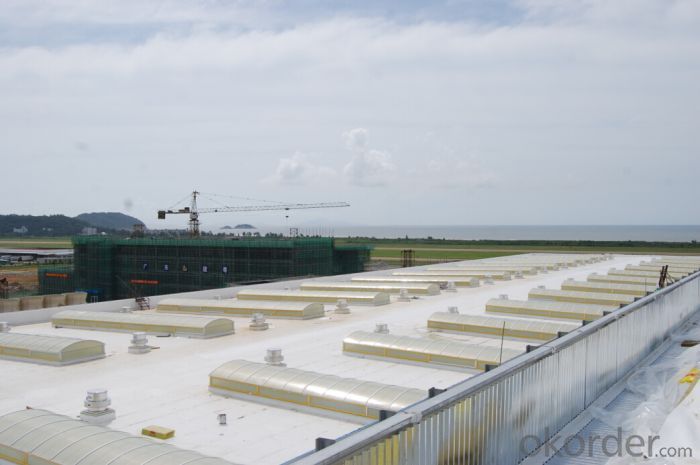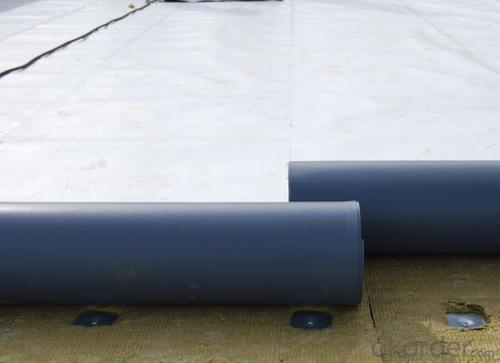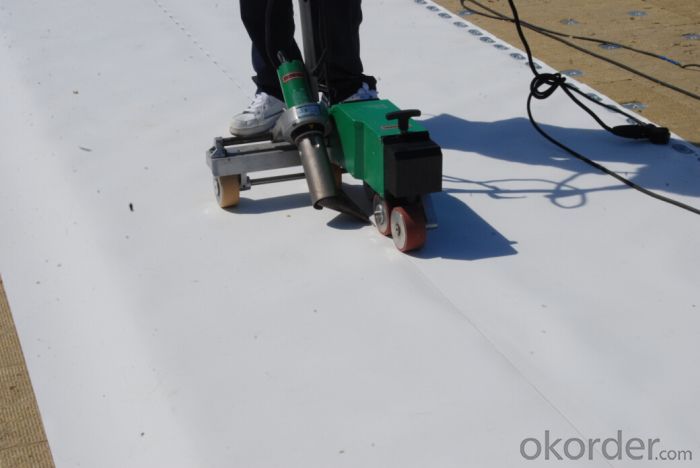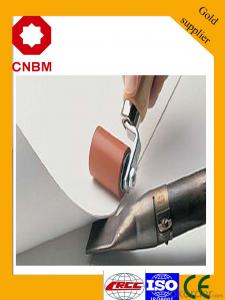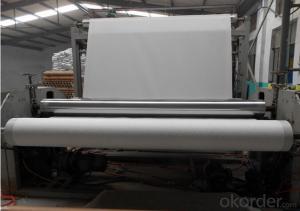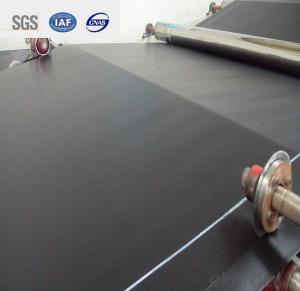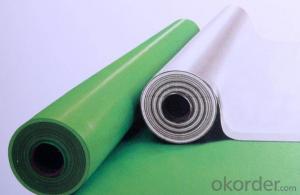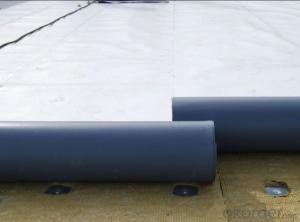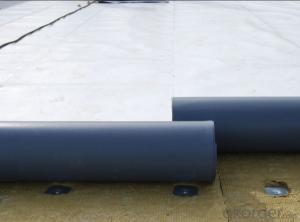TPO Waterproof Roofing Membrane Thickness with 2.0 mm
- Loading Port:
- Qingdao
- Payment Terms:
- TT OR LC
- Min Order Qty:
- 5000 m²
- Supply Capability:
- 10000 m²/month
OKorder Service Pledge
OKorder Financial Service
You Might Also Like
Product Description:
Description Of TPO membrane:
Tpo waterproof roofing membrane for sale
1.high breathable membrane
2.market:all over the world
3.resonable price
Main Features of TPO membrane:
- Easy installation with good system integrity, need few accessories
- High tensile and tear strength, puncture resistance
- No plasticizer, heat aging and UV resistance, durable
- Hot-air welding, rapid welding speed, high peel strength (two times of PVC)
-No chlorine, 100% recyclable, environment friendly
- Durable hot-air welding performance and convenient maintainance
- Smooth surface, unfading and stain resistance
Product Advantages of TPO membrane:
1. Weather resistance and durability; Excellent weld ability;
2. No any crisp agents to prevent materials brittleness;
3. Intermediate enhanced polyester mesh fabric to have high tensile strength, fatigue resistance and penetrating resistance suitable for mechanically attached roofing systems;
4. Excellent the same high and low temperature resistance as rubber materials which can keep flexible at -50° C and keep mechanical strength in high temperature;
Applications of TPO membrane:
- Roof construction & steel structure of both industrial and civil engineering
- Underground engineering, such as subways, tunnels, air Raid shelter, etc.
- Sewage treatment, dam, reservoir and basement, grain storehouse, etc.
FAQ:
Q: Can I visit your company?
A: Yes, welcome to visit our enterprise.
Q: Can I do the third party testing before loading?
A: Yes, we could accept the third party testing.
Q: Which kind of payment in your company?
A: We could accept TT, LC at sight, etc.
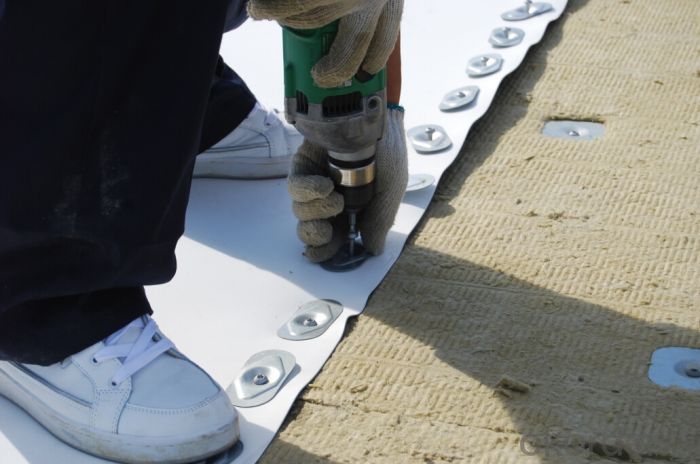
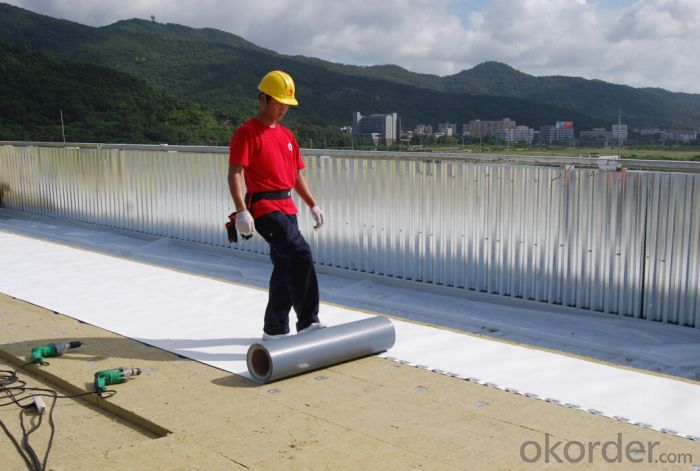
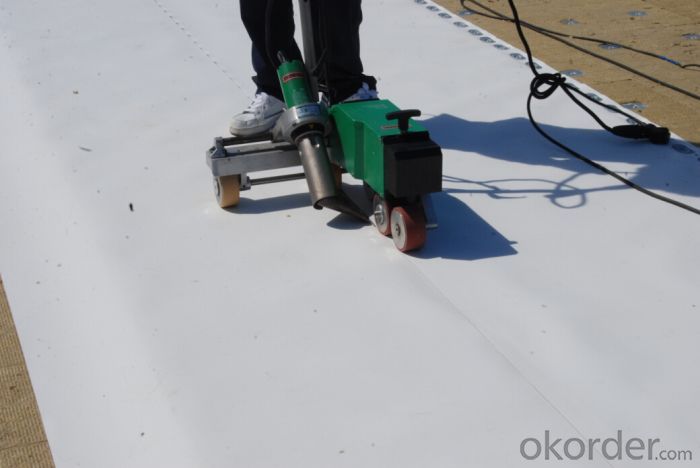
- Q: Are waterproofing membranes resistant to mineral oils?
- The resistance of waterproofing membranes to mineral oils can differ. Certain membranes are purposely engineered to withstand mineral oils, while others may not possess this capability. To ascertain the resistance level of a specific waterproofing membrane to mineral oils, it is crucial to review the manufacturer's specifications and product details. Moreover, seeking advice from a professional or directly contacting the manufacturer is advised to obtain tailored guidance regarding the compatibility of a waterproofing membrane with mineral oils in your unique scenario.
- Q: Can a waterproofing membrane be used for a parking garage deck protection?
- Yes, a waterproofing membrane can be used for parking garage deck protection. A waterproofing membrane is specifically designed to prevent water infiltration and protect the underlying structure from moisture damage. In the case of a parking garage deck, where constant exposure to water, vehicular traffic, and potential chemical spills can occur, a waterproofing membrane can provide an effective barrier against these elements. By applying a waterproofing membrane to the parking garage deck, you can prevent water from seeping through the concrete and reaching the underlying steel reinforcement. This helps to avoid corrosion and deterioration of the structure, extending its lifespan and reducing the need for costly repairs or replacements. Furthermore, a waterproofing membrane can also protect the deck from other potential sources of damage, such as oil or chemical spills from vehicles. It creates a barrier that prevents these substances from penetrating the concrete and causing stains or deterioration. Additionally, a waterproofing membrane can enhance the overall durability and strength of the parking garage deck. It can help to minimize cracking, spalling, and other forms of concrete damage that can occur due to freeze-thaw cycles, temperature fluctuations, or heavy loads. Overall, using a waterproofing membrane for parking garage deck protection is a highly recommended solution to ensure the longevity and structural integrity of the parking facility. It provides a reliable defense against water infiltration, chemical spills, and other potential sources of damage, ultimately reducing maintenance costs and extending the lifespan of the parking garage deck.
- Q: Are waterproofing membranes resistant to corrosion?
- Yes, waterproofing membranes are typically resistant to corrosion. They are specifically designed to withstand exposure to moisture, chemicals, and other potentially corrosive substances, ensuring long-lasting protection against water infiltration and damage.
- Q: Can a waterproofing membrane be used in steam rooms?
- Yes, a waterproofing membrane can be used in steam rooms. Steam rooms generate high levels of moisture and heat, which can cause damage to the walls and floors. A waterproofing membrane creates a barrier that prevents moisture from seeping through and protects the underlying structure. It is essential to choose a membrane specifically designed for steam room application to ensure proper performance and durability.
- Q: Can a waterproofing membrane be used on steel surfaces?
- Yes, a waterproofing membrane can be used on steel surfaces. Waterproofing membranes are designed to provide a protective barrier against water and moisture, and they can effectively adhere to and seal steel surfaces, preventing water penetration and potential damage.
- Q: Can a waterproofing membrane be used for zoos or aquariums?
- Yes, a waterproofing membrane can be used for zoos or aquariums. Waterproofing membranes are designed to provide a protective barrier against water infiltration and can be an effective solution for preventing water damage and leakage in these types of environments. They can be applied to various surfaces, such as concrete or steel, to create a watertight seal and prevent water from seeping into the structure or habitat. Waterproofing membranes are often used in aquariums to ensure that the tanks remain water-tight and do not leak, which is crucial for the well-being of the aquatic animals. Similarly, in zoos, waterproofing membranes can be used in animal enclosures or exhibit areas to prevent water damage to the structures and maintain a safe and healthy environment for the animals. Additionally, the membranes can also protect against potential chemical spills, as they are often resistant to various chemicals and can withstand harsh conditions. Overall, waterproofing membranes are a suitable option for zoos or aquariums as they provide an effective solution for maintaining the integrity of the structures and habitats, preventing water damage, and ensuring the safety and well-being of the animals.
- Q: Can a waterproofing membrane be used on concrete slabs or foundations?
- Yes, a waterproofing membrane can be used on concrete slabs or foundations. It serves as a protective barrier against water penetration, preventing moisture-related issues such as leaks, mold, and structural damage. The membrane is typically applied to the exterior surface of the concrete to create a waterproof seal.
- Q: Can a waterproofing membrane be used for a retaining wall drainage?
- Yes, a waterproofing membrane can be used for retaining wall drainage. A waterproofing membrane is typically used to prevent water from penetrating through a structure, such as a basement or foundation. However, it can also be used in the construction of retaining walls to provide a barrier against water seepage. Retaining walls are designed to hold back soil and prevent erosion, but they can be susceptible to water damage if not properly constructed. Water seepage can cause pressure build-up behind the wall, leading to structural issues over time. By installing a waterproofing membrane on the backside of the retaining wall, it acts as a barrier to prevent water from infiltrating the soil and accumulating behind the wall. In addition to preventing water seepage, a waterproofing membrane can also aid in the drainage of water away from the retaining wall. By incorporating drainage systems, such as weep holes or French drains, in conjunction with the membrane, water can be directed away from the wall, reducing hydrostatic pressure and potential damage. It is important to note that while a waterproofing membrane can be used for retaining wall drainage, it is crucial to ensure proper installation and compatibility with the specific retaining wall system and conditions. Consulting with a professional engineer or contractor experienced in the construction of retaining walls is recommended to ensure the best approach for your specific project.
- Q: Can a waterproofing membrane be used in commercial buildings?
- Indeed, it is possible to utilize a waterproofing membrane in commercial establishments. Waterproofing membranes serve the purpose of safeguarding diverse sections of a building, encompassing roofs, foundations, and basements, against water infiltration. In the case of commercial buildings, where the likelihood of water harm is heightened due to larger surface areas, increased foot traffic, and intricate architectural designs, waterproofing membranes prove to be a viable solution. These membranes are specially crafted to establish a protective barrier against water, thereby averting leaks, moisture, and potential structural harm. Furthermore, the integration of waterproofing membranes contributes to the longevity of the building by reducing the risk of deterioration resulting from exposure to water. Consequently, the incorporation of a waterproofing membrane system in commercial establishments aids in maintaining a secure and dry environment, safeguarding valuable assets, and optimizing the lifespan of the structure.
- Q: Can a waterproofing membrane be used in stadiums or sports complexes?
- Yes, a waterproofing membrane can certainly be used in stadiums or sports complexes. In fact, it is highly recommended to use waterproofing solutions in these types of structures to protect them from water damage and leakage. A waterproofing membrane acts as a barrier, preventing water from seeping into the concrete or other materials used in the construction of the stadium or sports complex. This is particularly important in areas where heavy rainfall or high humidity is common. By applying a waterproofing membrane to the roofs, walls, and foundations of these structures, it helps to ensure the integrity and longevity of the building, while also providing a comfortable and safe environment for athletes and spectators alike. Waterproofing membranes are designed to withstand the stresses and movements associated with the building, making them an ideal solution for stadiums and sports complexes. Additionally, modern waterproofing membranes are available in various forms, such as liquid-applied or sheet membranes, allowing for flexibility in application and compatibility with different construction materials.
Send your message to us
TPO Waterproof Roofing Membrane Thickness with 2.0 mm
- Loading Port:
- Qingdao
- Payment Terms:
- TT OR LC
- Min Order Qty:
- 5000 m²
- Supply Capability:
- 10000 m²/month
OKorder Service Pledge
OKorder Financial Service
Similar products
Hot products
Hot Searches
Related keywords
